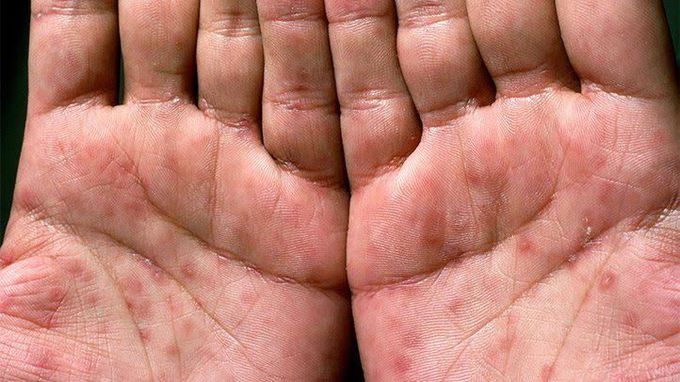


Syphilis symptoms
Syphilis can be kind of confusing because there are a few different stages, and they can overlap or happen around the same time. And there may be times when you have no symptoms at all — but the infection will still be there until you get it treated. Symptoms can vary with each stage, and they might not always happen in the same order for everyone. Primary stage. A syphilis sore (called a chancre) pops up — that sore is where the syphilis infection entered your body. Chancres are usually firm, round, and painless, or sometimes open and wet. There’s often only 1 sore, but you may have more. Chancres can show up on your vulva, vagina, anus, penis, scrotum, and rarely, your lips or mouth. The sores may also hide deep in your vagina, under your foreskin, inside your rectum, and other places that are hard to see. Syphilis sores are SUPER contagious and easily pass the infection to other people during sex. It’s easy to mistake a chancre for an ingrown hair, pimple, or harmless bump. And because the sores aren’t painful and can live in hidden places, you may not notice them. Chancres typically show up anywhere between 3 weeks and 3 months after you get the infection. The sores usually last about 3 to 6 weeks and then go away on their own — with or without treatment. But if you don’t get treated, you still have syphilis, even if the sores are gone. You have to take medication to cure syphilis and stop it from moving to the next stage. Secondary stage. Secondary stage symptoms include rashes on the palms of your hands, soles of your feet, or other parts of your body. The secondary syphilis rash is sometimes hard to see, and it usually doesn’t itch. You may feel sick and have mild flu-like symptoms, like a slight fever, feeling tired, sore throat, swollen glands, headache, and muscle aches. You can also have sores in your mouth, vagina, or anus, and weight or hair loss. Secondary stage symptoms (syphilis rash) can last 2 to 6 weeks at a time, and may come and go for up to 2 years. They’re similar to other common illnesses, so it can be hard to tell it’s syphilis. The symptoms from this stage will go away by themselves with or without treatment. But unless you get treated for syphilis, you’ll still have the infection in your body and it can move into the dangerous later stages. That’s why STD testing is so important. Late stage. In between the secondary stage and the late stage, there may be times when your syphilis infection is latent (there are no signs or symptoms at all) for months or even years — but you still need treatment to get rid of it. People who have had syphilis for a long time face serious health problems. Late stages of syphilis can cause tumors, blindness, and paralysis. It can damage your nervous system, brain and other organs, and may even kill you.

